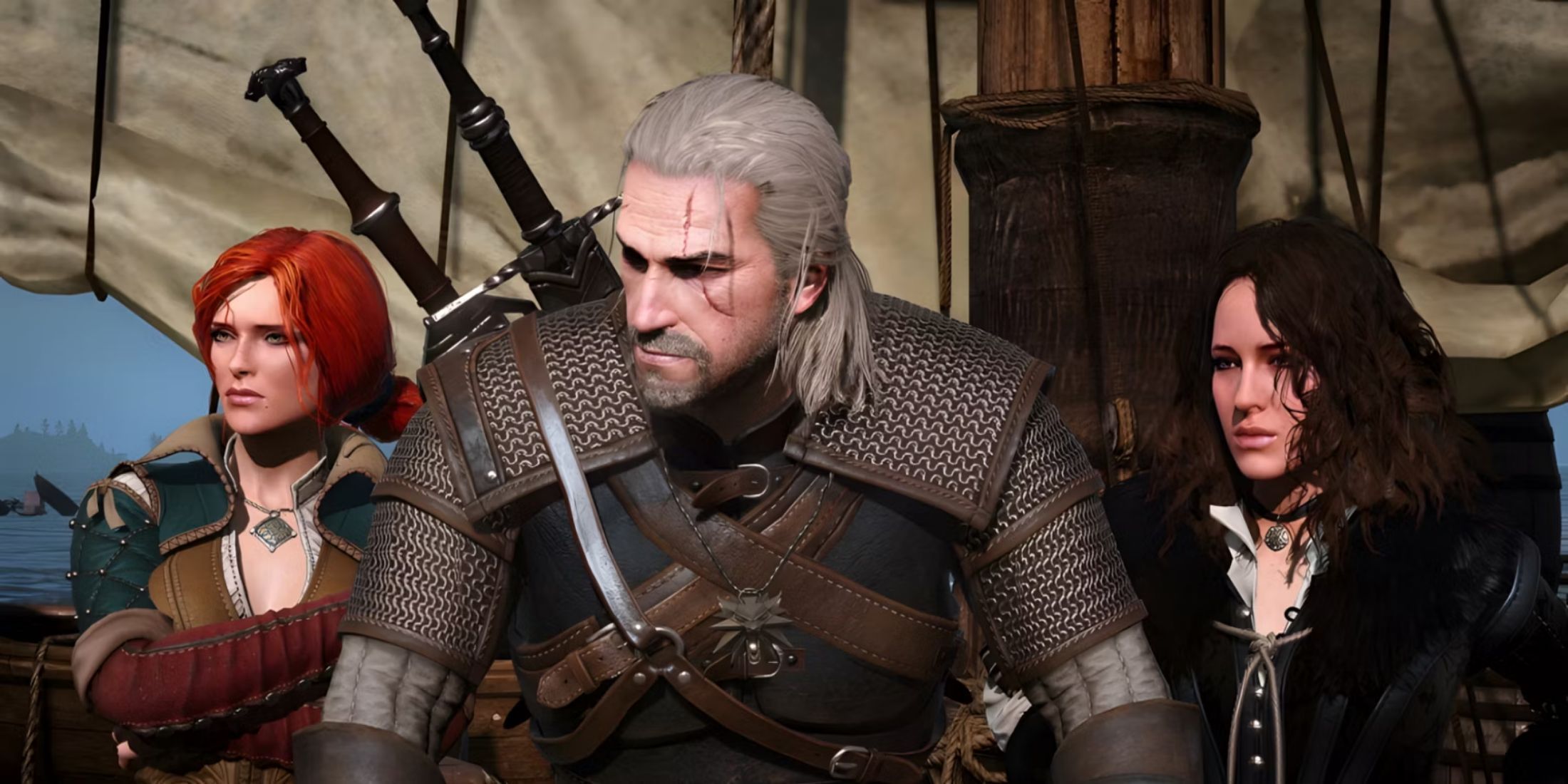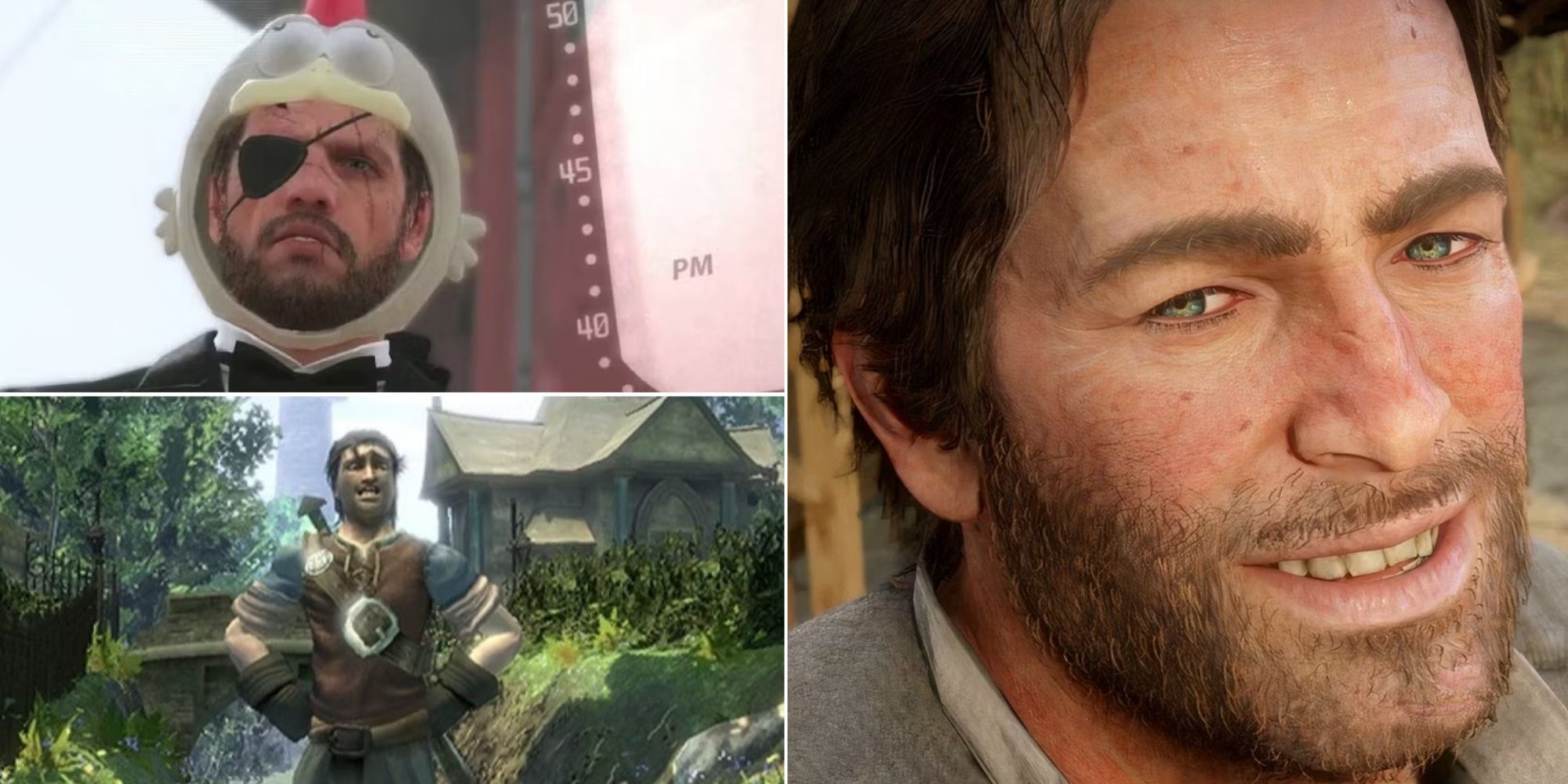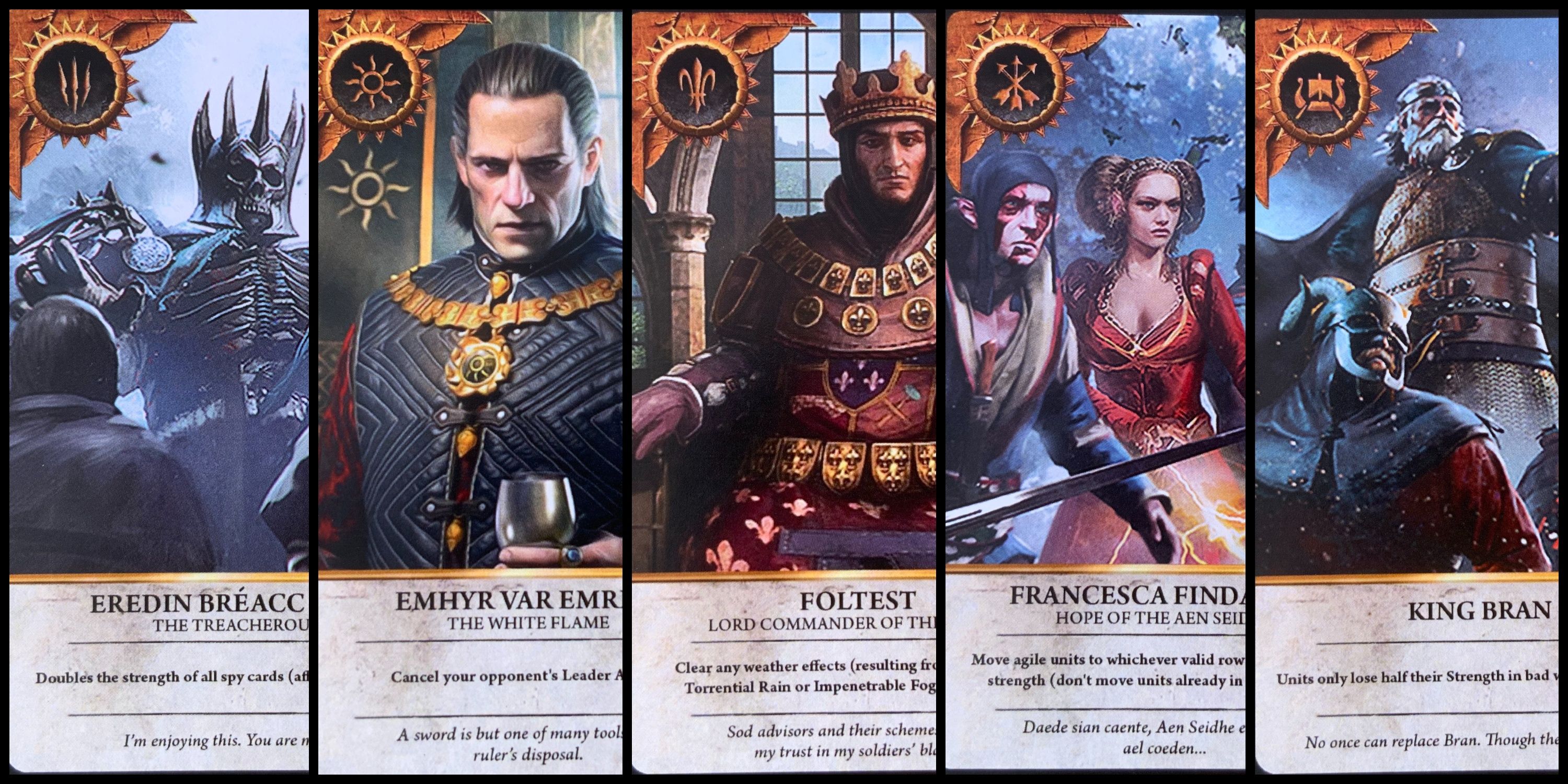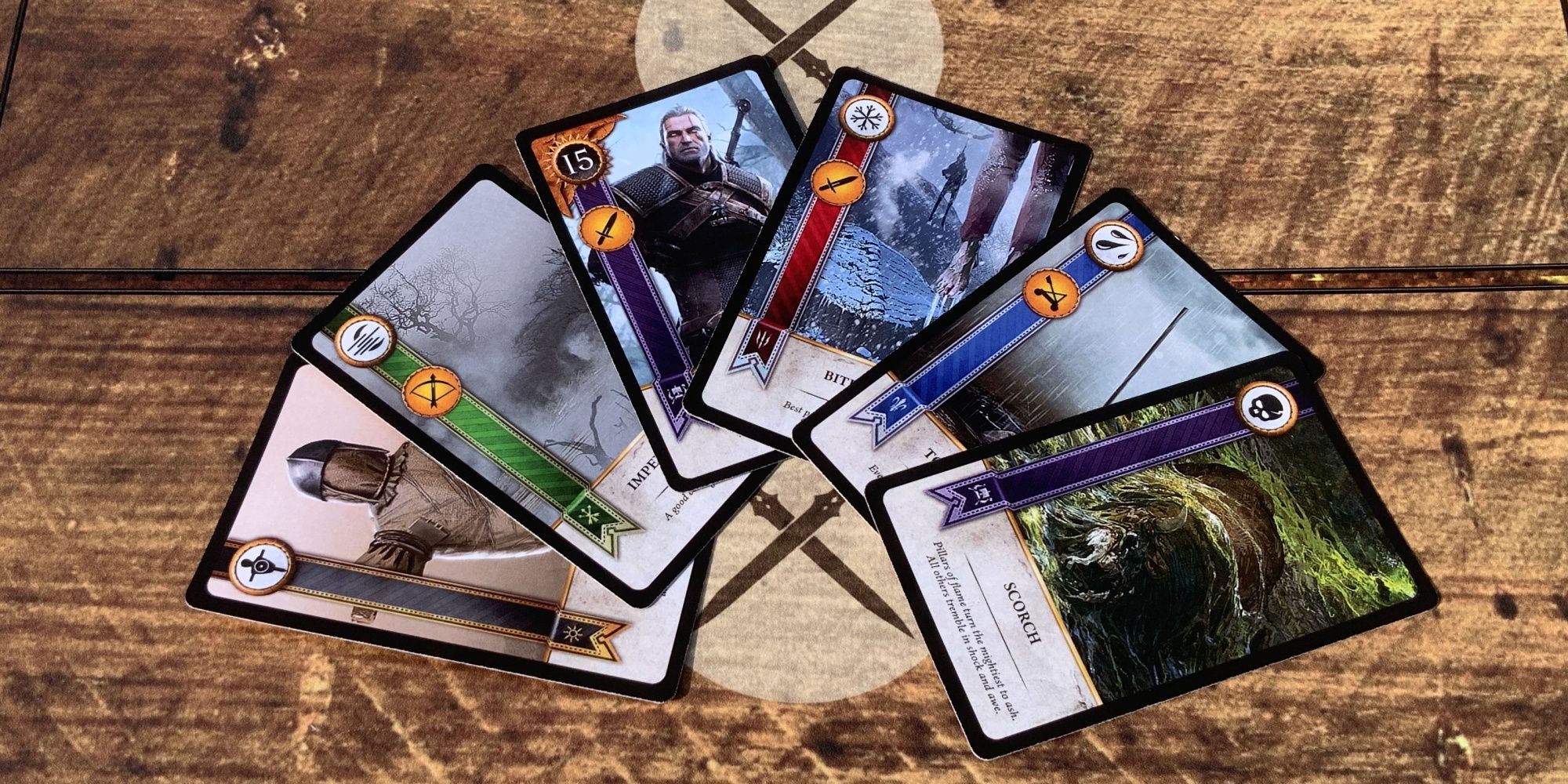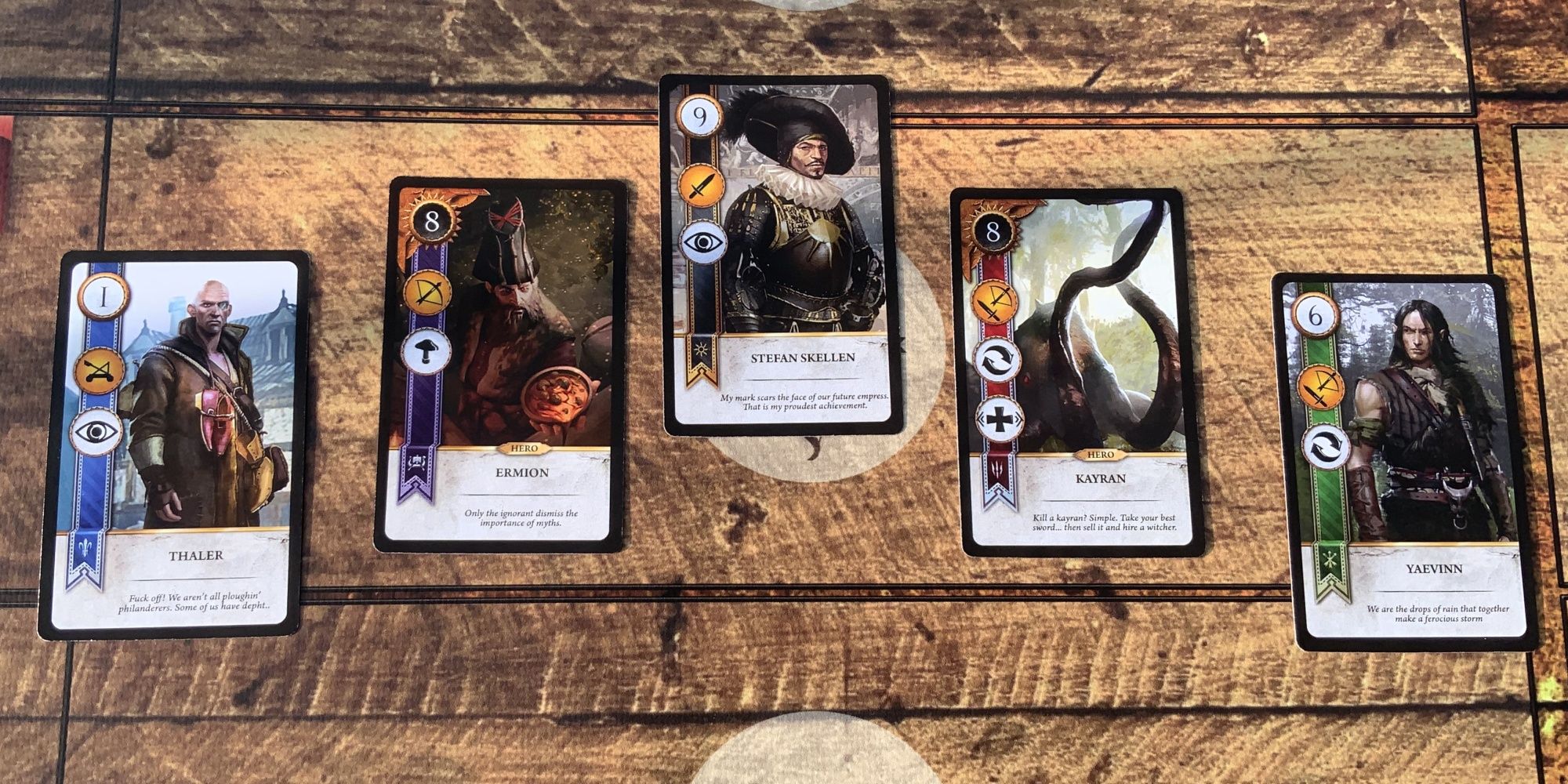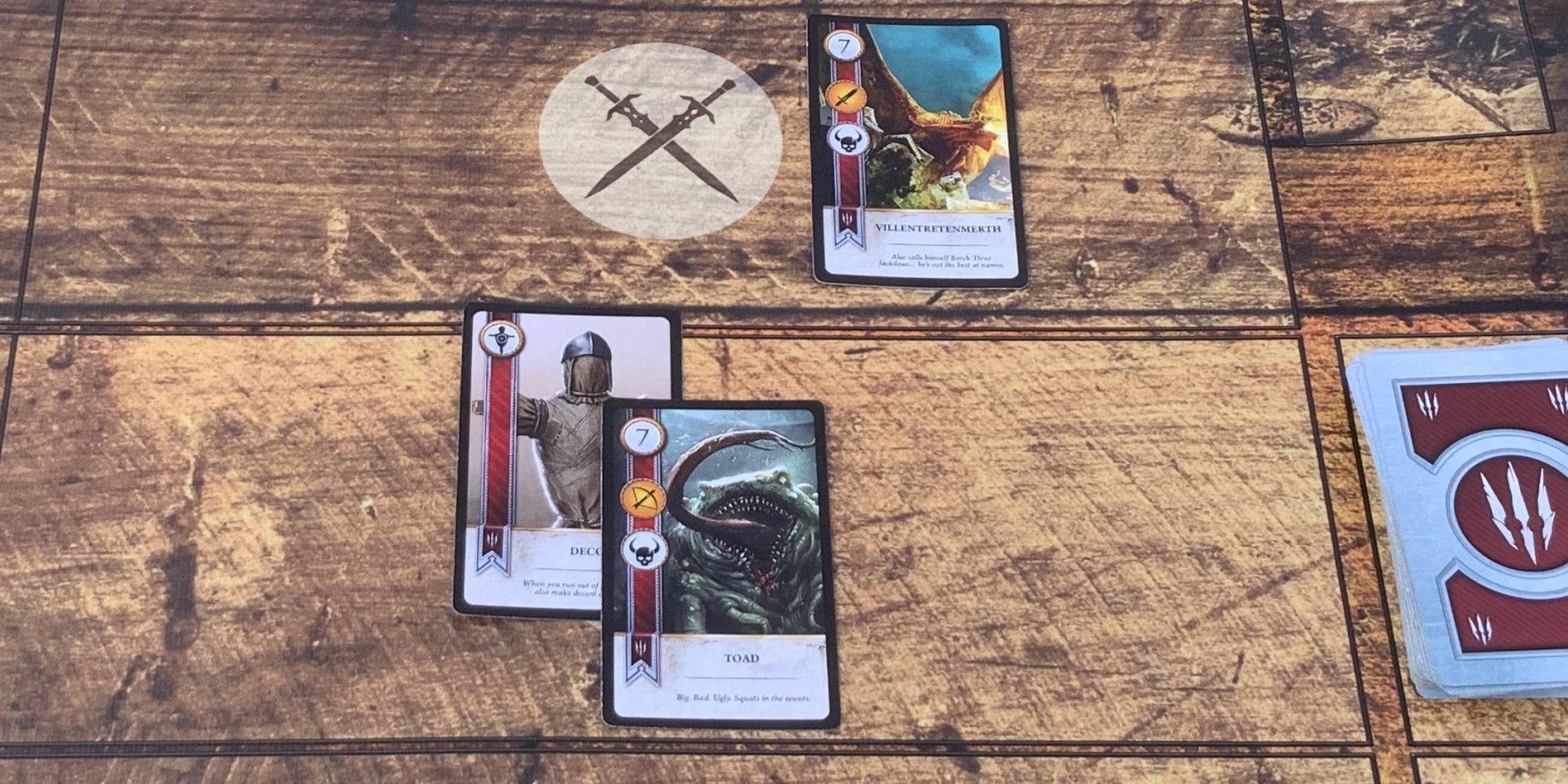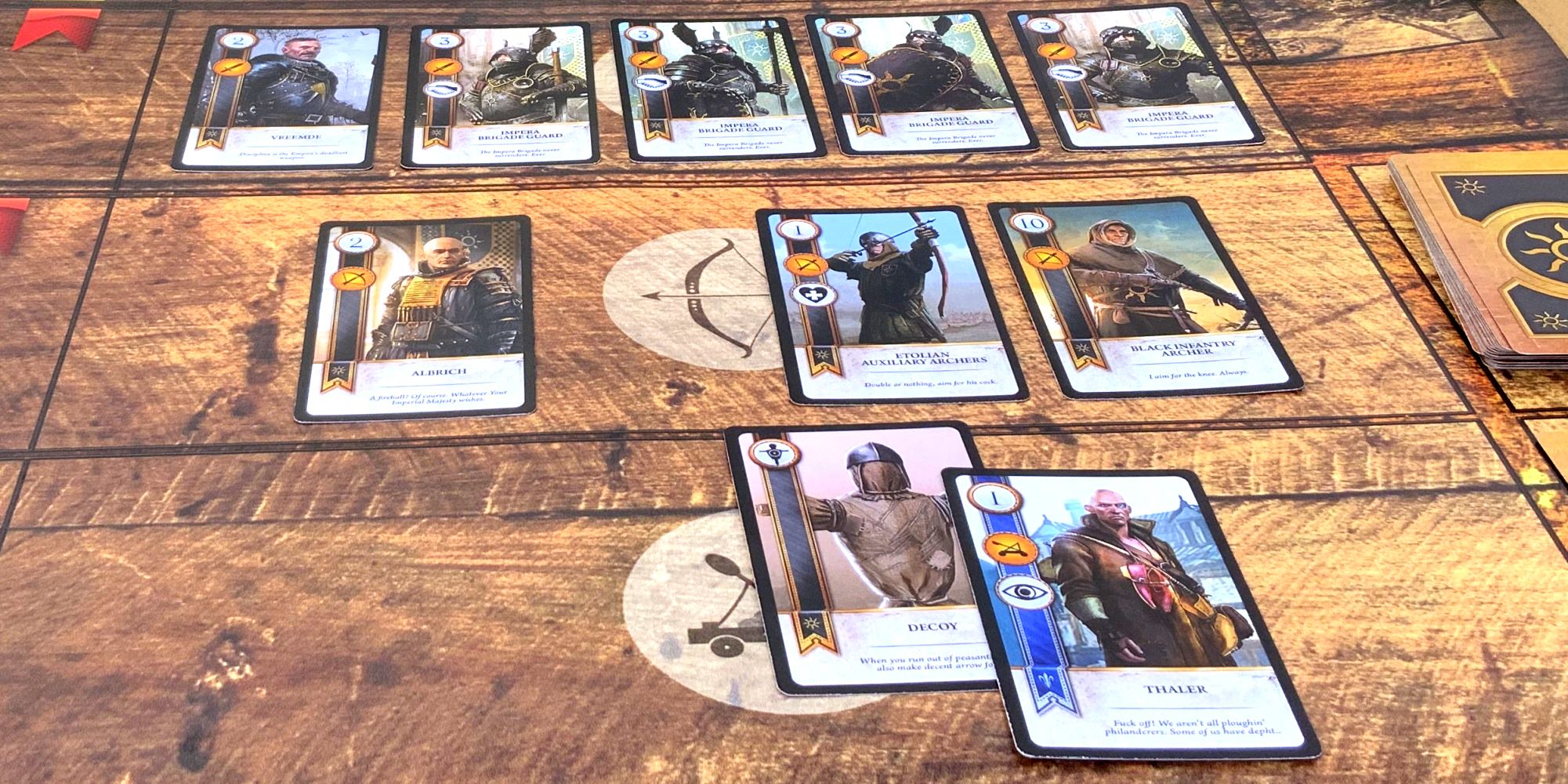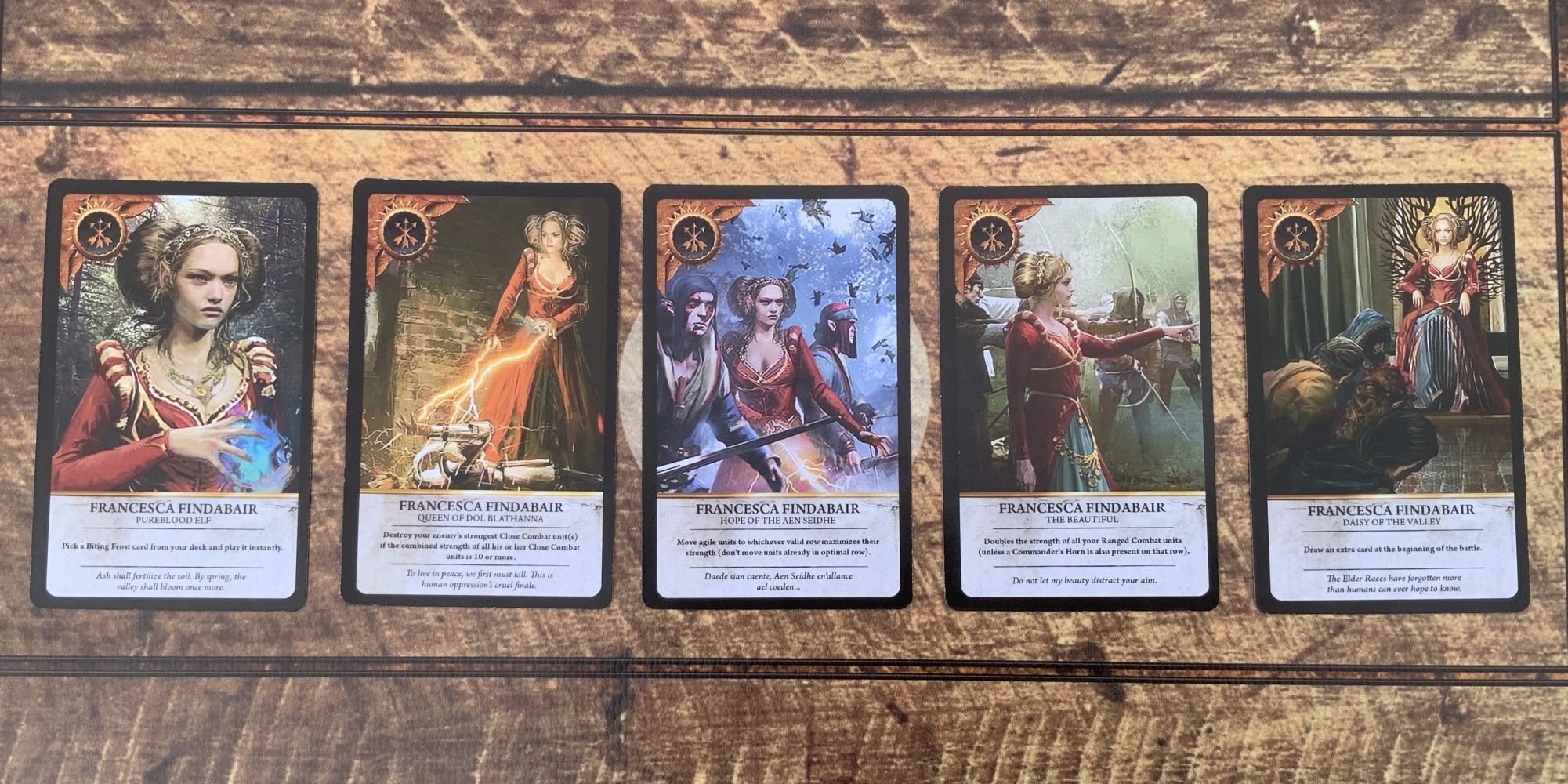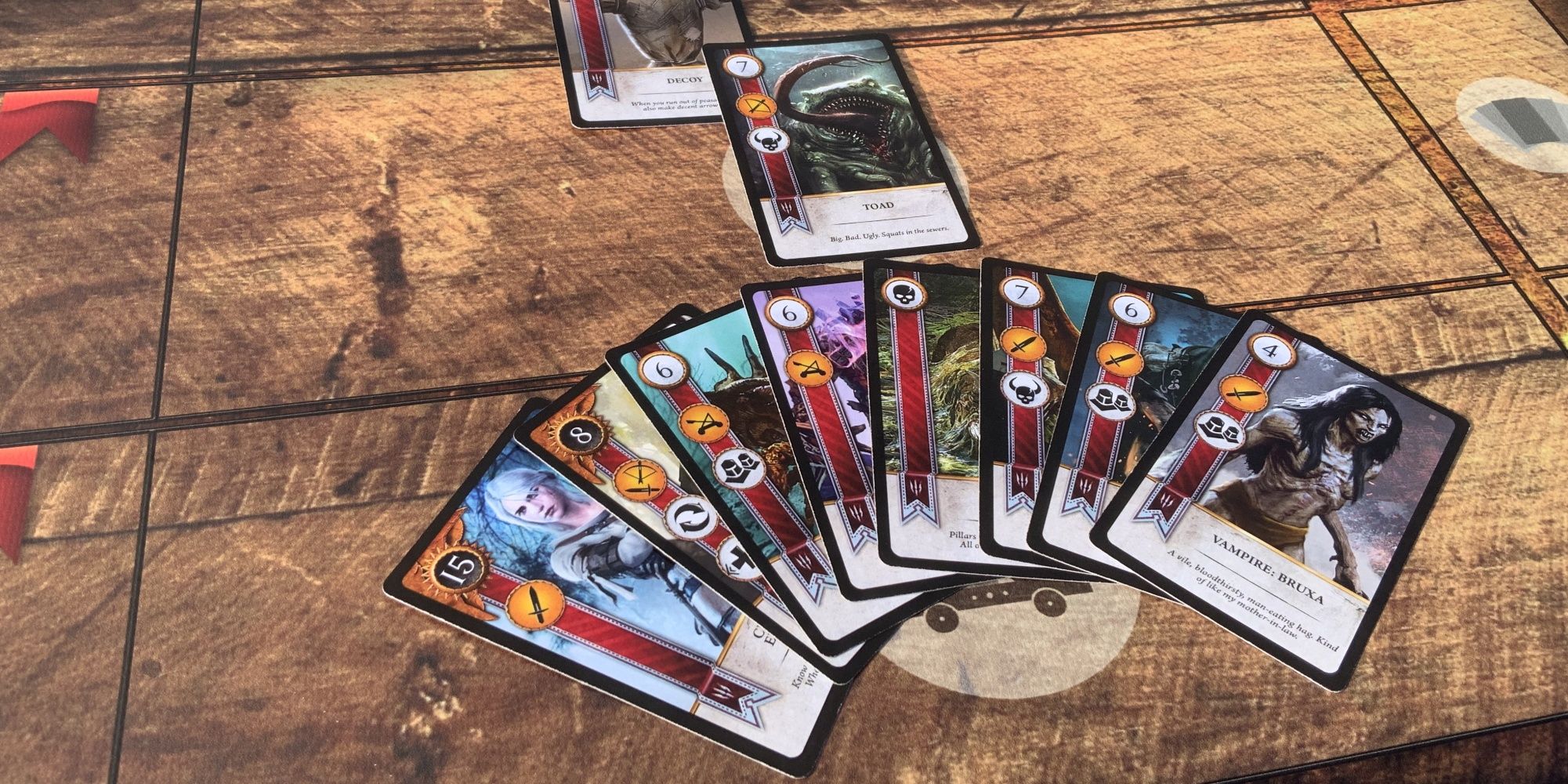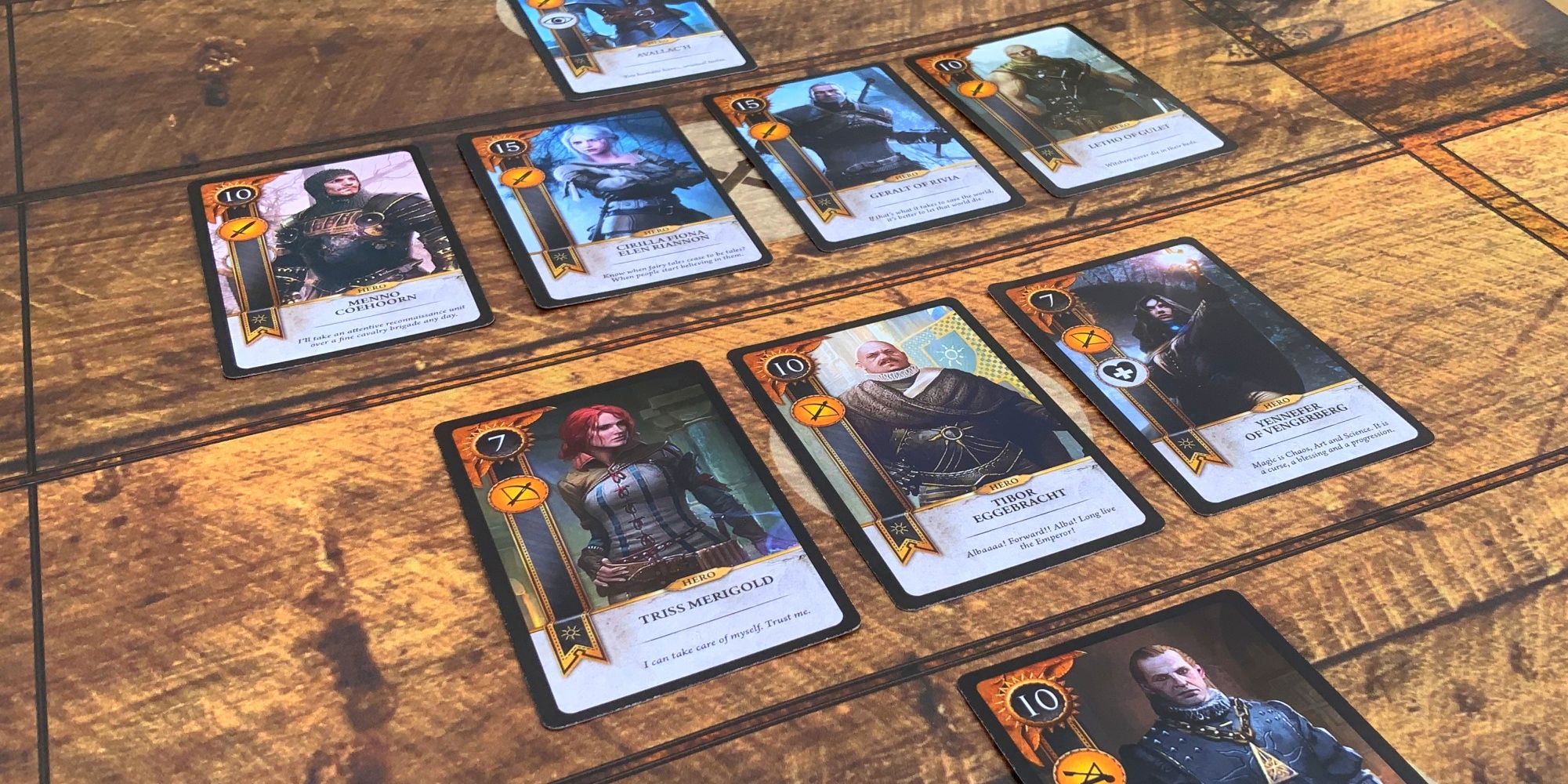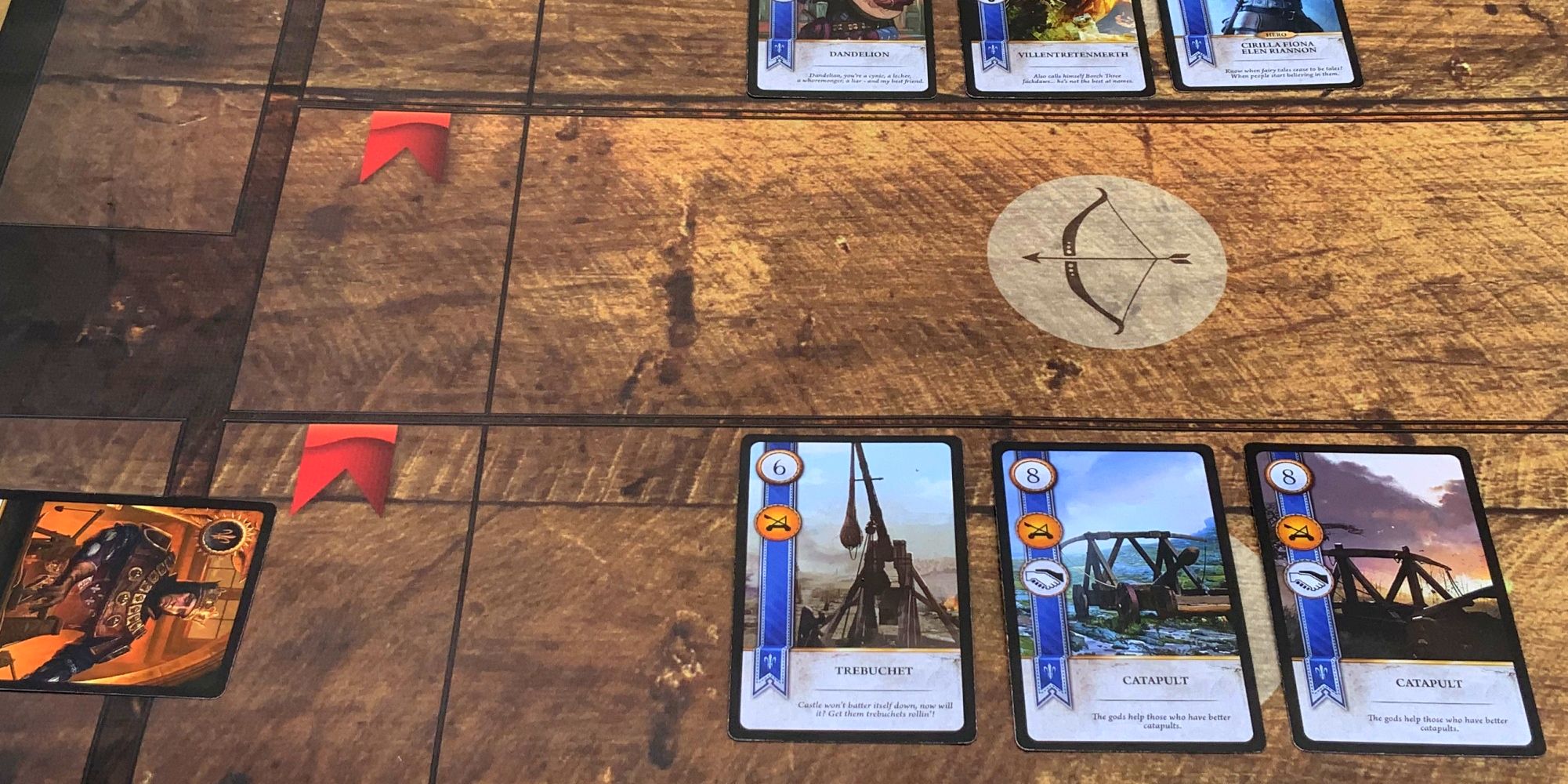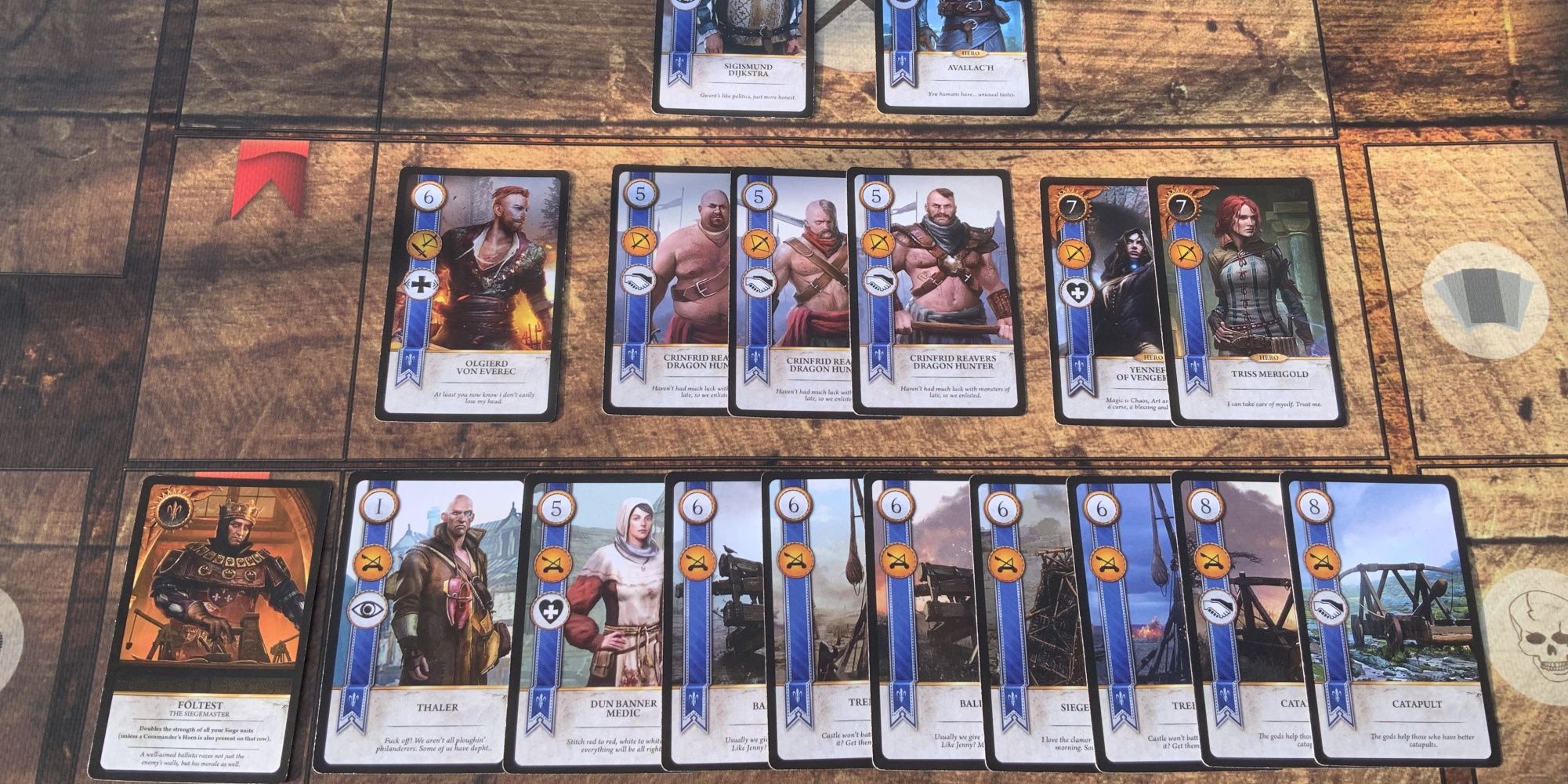Gwent is one of the finest things about The Witcher 3: The Wild Hunt, but winning all the rewards can seem a little daunting with a beginner's deck. Luckily, Gwent isn't difficult to master. With the help of a few strategies, even the weakest Gwent deck is capable of winning nearly every game in The Witcher 3.
It's worth noting that some of the most valuable cards, such as the Geralt, Ciri, Yennefer, and Avallac'h Gold units, are available to all decks, so they only offer so much of an advantage. However, each deck has a major strength and a major weakness to exploit where untouchable cards like this will come in handy.
Matching The Opponent's Deck
Each deck is particularly vulnerable to at least one other. While the player's collection is still limited, it's worth considering special units and abilities to combat the opponent's hand.
- Scoia'tael is strongest against Scorch and weakest against Impenetrable Fog. It's also easily overwhelmed with points.
- The best way to defeat Nilfgaard is to use its Spies against it with Decoy.
- The siege advantage of Northern Realms can be flattened with Torrential Rain.
- Monster relies heavily on close combat units, so Biting Frost and strategically played Scorch does well against it.
- The mighty berserker units in Skellige are weak against Scorch and the advantage Skellige Storm gives can be negated with Gold units.
Picking Out A Choice 30
It's worth sticking to the middle of the 25-40 range allowed by the rules. Fewer cards will mean a higher chance of pulling high-value cards. Having too few cards can result in sacrificing too much too early, and too many will dilute the pack. It's also worth remembering that most decks only draw new cards at the beginning of round one.
Some of the most valuable cards don't have the highest point totals. In the case of Spies, the player increases the opponent's points, so they should be used in a round that can be lost and otherwise sparingly. Transforming units like Cow should be placed at the end of a losing round.
Deck Prep: Special Cards
Sticking to a maximum of two special cards of a kind is enough to give the player an edge. Special cards shouldn't be the goal to draw or play. They are tactical advantages that should be limited in overall number and should support the strategy the player wants to employ. A few more tips:
- Weather cards: it's only worth keeping a couple if the opposing deck relies heavily on one row
- Scorch cards: a unit with the Scorch ability only affects the row where the unit goes on the opponent's side, but the Scorch card will claim all units of the same point value on the board
- Decoy cards: Decoys can also be used to strategically withdraw the player's high-value units without passing
Deck Prep: Choosing The Strategy
It's a good idea to plan on using the opposing deck’s strength against it. For example, if Nilfgaard is the opponent, there will be Spies, and they can help the player as much as the opponent. It's also worth keeping the following in mind:
- Spies can be used and borrowed multiple times with Decoy and Medic cards
- Ally summoning units can work for or against the player
- Throwaway, low-value units can force the opponent to put down high-value cards
- Every deck has a special ability to factor in, e.g. Northern Realms draws a new card if it won the last round
Deck Prep: The Leader
The leader card should support the player's most devastating hand. It's better to build around the available options than choose a useless leader, although at the very least it's always a move to make without passing that forces the opponent to pass first.
Leaders that double the strength of a row are particularly powerful, but they are easy to subvert if the deck playing against it is customized to attack that row. Conversely, if the player's deck has strong cards in other rows, seeming to favor a single row can trick opponents into thinking that the player will play to their strength.
Losing The Battle To Win The War
There is a well-known strategy in Gwent to lose the first round to win the game, but that doesn't mean the round should be a total loss. This round is an ideal time to force the opponent to waste cards by matching their numbers or by putting down high-value units for the opponent to Scorch.
Gold units can force the opponent to match point totals, which is a good strategy against decks that rely on overwhelming numbers, like Monster and Skellige. Putting down a lot of low-value units may force the opponent to pass early, making it easy to score the first victory, in which case the second round should be lost for maximum point totals.
The Golden Rules
Sacrificing Gold units can be quite strategic, as they are far more valuable as cards that cannot be touched rather than being worth a lot of points. If a weather card or Scorch is used by either player, a Gold unit can turn the tide or hold the line. A few more "Golden Rules":
- A single Gold unit is worth keeping until the end
- One of two Gold units in the hand can be placed strategically early
- With more than three Gold units in hand, any number can be kept in reserve for a surprise point boost
Doubling Strength At The Last Moment
Usually, it's a good tactic to save the best cards for last. Units that strengthen each other, Gold cards, and rows that can be doubled with Commander's Horn should play out in the third round or at the end of round two.
It's a good idea to hang onto a few attack cards to eliminate the opponent's final cards. Reaching the third round doesn't guarantee victory, so keeping a Scorch or other attack card in hand can be useful against decks that can summon a lot of points like Monster or Scoia'tael.
Counting Cards
Usually, the player with more cards wins. That being said, strategy enthusiasts will observe that it's often a bluff. If the opponent has two or fewer cards, it's a good bet they're not worth playing in the third round.
It's advantageous to hold onto three valuable cards until round three. If the player draws weak cards, they can be used to delay a pass in earlier rounds or kept to bluff the opponent.
Some Pointers On Winning With Northern Realms
The Northern Realms is the easiest deck to collect early on in The Witcher 3. Its strength is siege units, but it's also worth keeping a selection of close combat and ranged units to get the most out of it. Other useful tips:
- There need to be high-value cards in the deck that Spies can add to a hand
- High-value ranged and close combat units can be sacrificed in early rounds to force the opponent to waste cards
- With all siege units in the deck, it's worth sometimes strategically sacrificing one or two in early rounds to throw off the opponent
- The best time to use the Foltest: The Siegemaster ability is at the end of the last winnable round
Needless to say, there is an element of luck in the alchemy that is a game of Gwent. That being said, even a bad hand can be turned around by keeping these strategies in mind.
The Witcher 3: The Wild Hunt is available on PC, PlayStation 4, PlayStation 5, Xbox One, Nintendo Switch, and Xbox Series X/S.

